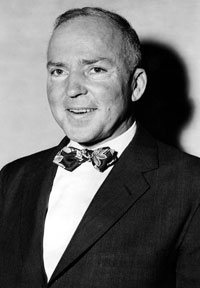A Quote by Nicholson Baker
So what rhyming poems do is they take all these nearby sound curves and remind you that they first existed that way in your brain. Before they meant something specific, they had a shape and a way of being said. And now, yes, gloom and broom are floating fifty miles away from each other in you mind because they refer to different notions, but they're cheek-by-jowl as far as your tongue is concerned. And that's what a poem does. Poems match sounds up the way you matched them when you were a tiny kid, using that detachable front phoneme.
Quote Topics
As Far As
Away
Away From Each Other
Because
Before
Being
Brain
Broom
Cheek
Concerned
Curves
Different
Does
Each
Existed
Far
Fifty
First
Floating
Front
Gloom
Had
Kid
Match
Matched
Meant
Miles
Miles Away
Mind
Nearby
Notions
Now
Other
Poem
Poems
Refer
Remind
Rhyming
Said
Shape
Something
Sound
Sounds
Specific
Take
Them
Tiny
Tongue
Up
Using
Way
Were
Yes
Your
Related Quotes
[My poems] of course, it's symbolic, in the way that things in a poem can be - that is, pointing to something beyond its mere ordinary meaning, while also retaining all the qualities of that ordinary meaning. In other words, it's a bear, but it's also suggesting something else, just by virtue of the attention to it. But it's not "symbolic" in that way we are taught to think about things in poems.
When you are writing a spoken word poem, the tools you're working with are your voice, your body, how it's going to sound to someone when you're saying it out loud. Which is different from when you're writing it on the page. That toolbox becomes how does this look visually on the page, how does this read among pages, how is this in relation to poems that are before it or after it. I don't think one is better or more successful than the other. You've just gotta think about "what are the tools I'm using, and how are they most effective in this form?"
When Emily Dickinson's poems were published in the 1890s, they were a best-seller; the first book of her poems went through eleven editions of a print run of about 400. So the first print run out of Boston for a first book of poems was 400 for a country that had fifty million people in it. Now a first print run for a first book is maybe 2,000? So that's a five-time increase in the expectation of readership. Probably the audience is almost exactly the same size as it was in 1900, if you just took that one example.
The only thing that mattered to me with 'Xen' was setting things up against each other in an uncomfortable way. If there's a really soft piece of music, and then you're hit by a painful explosive sound, your brain does this funny somersault trying to make sense of why this happened. And at that very moment, your brain is malleable.
At times of crisis or distress, it's poems that people turn to. (Poetry) still has a power to speak to people's feelings, maybe in a way that fiction, because it works in a longer way, can't. There's a little bit of your brain that mourns and grieves that you're not writing poetry, but actually as long as I'm writing something, I'm happy.
I think that the casual reader and the lyric and confession are trickily tied up together. I mean often when I read my students' poems my first impulse is to say, "O, the subject of this pronoun, this 'I,' is whatever kid wrote this poem." The audience for lyric poems is "confessionalized" to some extent. And I think this audience tends to find long narrative poems, for instance, kind of bewildering.
I'm always writing towards a discovery. When I'm writing poems in particular, I'm often writing because a few images coalesced in my mind and I thought, "I wonder why these images are abrading against each other. I wonder what happens if put them in a poem and explore them." I'm trying to learn something every time I write a poem.
But I liked you from the moment I first heard your voice,” he said, “when I had no idea what you looked like. I thought it delicious, the way you bargained for me, as though I were an old rug. Then I loved the way you looked at me. Then I loved the way you ordered me about. I loved your patient and impatient ways of explaining things to me. I love the sound of your voice and the way you move. I love your courage and your kindness and your generosity and your obstinacy and your passion.” He paused. “You’re the genius. What do you think that means?







































